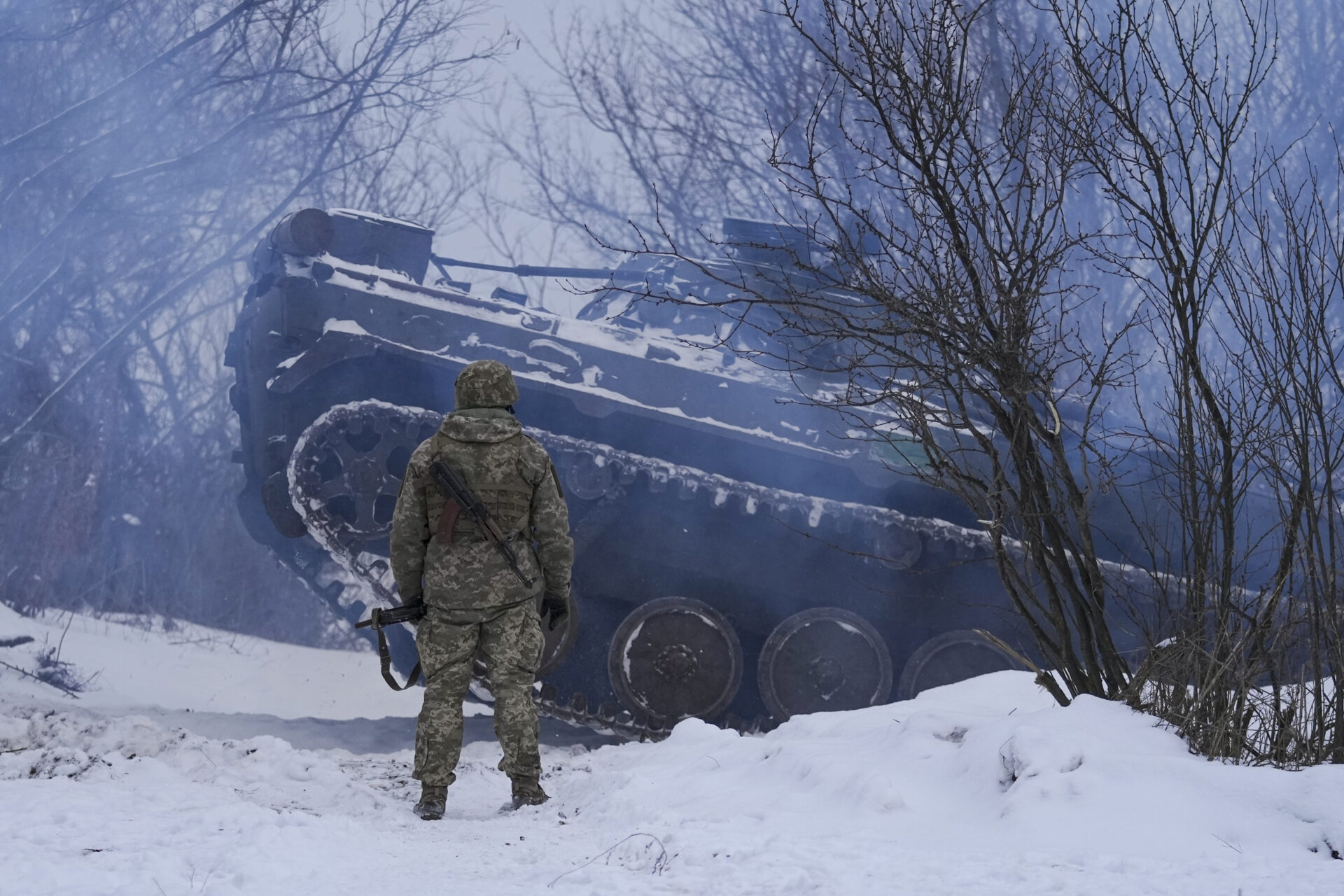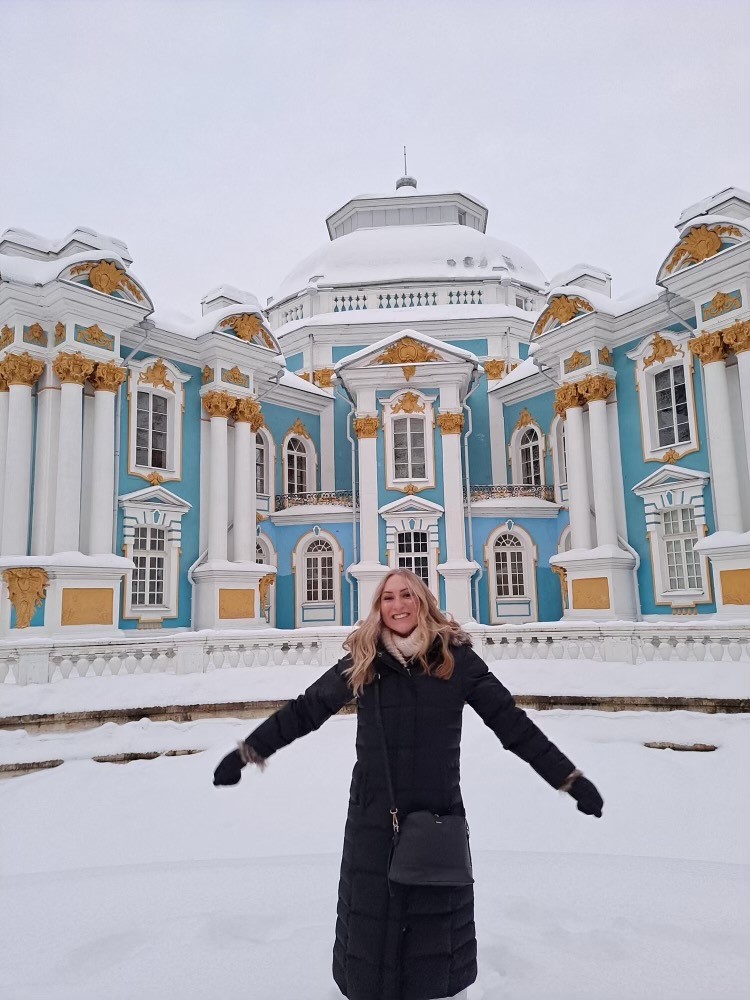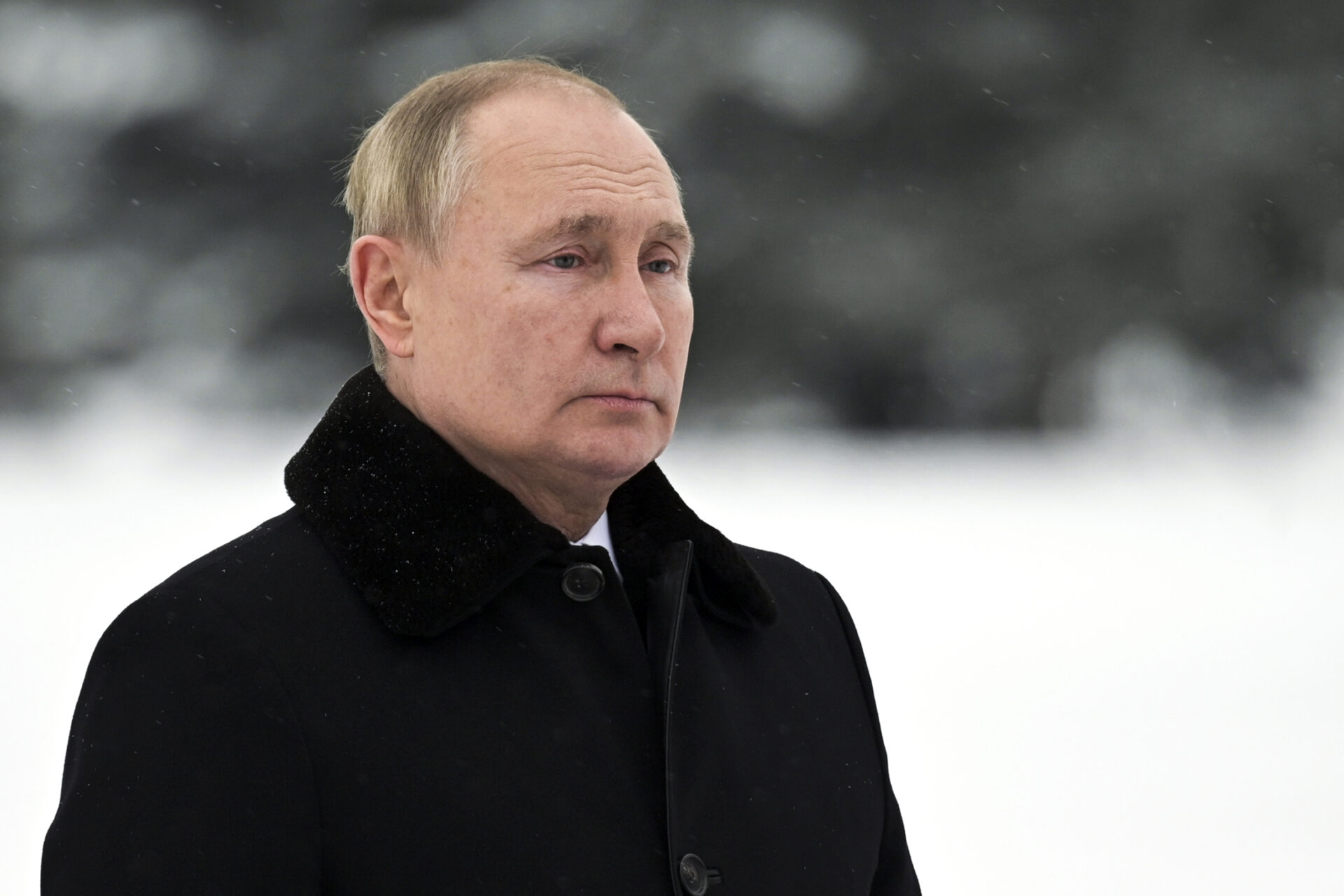
Approximately 100,000 Russian troops are stationed along Ukraine’s border, prompting caution from world and Church leadership as the threat of invasion looms.
The Church of Jesus Christ of Latter-day Saints announced on Jan. 24 it is temporarily reassigning full-time missionaries in the Ukraine Dnipro and Ukraine Kyiv/Moldova missions to locations outside the country.
“The decision is made out of an abundance of caution, as some government embassies in Ukraine are preparing to move certain personnel and their family members,” Church spokesman Sam Penrod said in a statement. “We pray for a peaceful resolution to the tensions in Ukraine and look forward to when the missionaries may return.”
Many of these missionaries are being reassigned to missions in Europe. Some missionaries will serve in Moldova which is away from any potential conflict areas according to the release. In 2014, civil unrest in Ukraine prompted similar missionary transfers.
Defense Secretary Lloyd Austin told a Pentagon news conference on Jan. 28 that Russian president Vladimir Putin now has a complete range of military options, the Associated Press reported. While U.S. officials don’t believe Putin has decided to use these forces against Ukraine, he now has the capability to.
History of tension
Ukraine gained independence when the Soviet Union collapsed in 1991 after centuries of Russian influence. Since the 90s, Ukranian presidents and prime ministers have bounced back and forth from being oriented more toward Russia and more toward Europe, BYU history professor Jeff Hardy said.
Protests erupted in late 2013 after Ukraine’s former President Viktor Yanukovych backed out of a trade agreement with the European Union, trying to forge a balance between pressure from the West and Russia, Hardy said. He remembers watching these events unfold live with his students during Russian history classes.
Putin later invaded Ukraine and seized Crimea, an important naval base where the majority of people identify as Russians, Hardy said. The former Donetsk and Luhansk regions of Ukraine voted for independence in a May 2014 referendum, becoming pro-Russia separatist governments.
Before this tumultuous year, Ukraine had a delicate, 50/50 balance in electoral politics between people oriented to the West and people oriented to Russia. These breakaways meant a lot of people who identify as Russians were no longer voting in Ukrainian elections, Hardy explained.
“This really disrupted that to make the Ukrainian government much more firmly Ukrainian nationalist and pro-West,” Hardy said.
Missionary adjustments

Drew Barnard heard about rising tensions between Ukraine and Russia after returning home from the Ukraine Kyiv Mission in November and has since reached out to some of the people he met there.
While they’re sad about the situation, he said they don’t seem very surprised. The tension is not out of the ordinary. “I wish I could help, but even if I was there I would be sent away,” he said. “So there’s nothing I can do.”
The mission was picking up speed after missionaries from the U.S. were reassigned to Ukraine back in June 2021. Barnard, who was serving as an assistant to the president at the time, said he saw more people learning the gospel and getting baptized. He said the mission had shrunk during the pandemic, but things were looking up.

The missionaries had “found their own fire” as well, Barnard said, recalling a general attitude shift within the mission. “Missionary work was returning to its former glory with new fresh minds to do it,” he said. “And now they’re all gone.”
Church history and doctrine professor Scott Howell’s daughter Liberty is serving in the Russia St. Petersburg mission, which has not been as affected. Howell said his daughter reassured her family that everything is fine. She’s hopeful everything will blow over so she can continue her work as a volunteer.
“You don’t have anything to be worried about,” Liberty wrote in a message to her family. “The worst thing that could happen is they reassign me to another mission in Europe and I finish up there, but I don’t think that will happen.”
Another missionary in Russia spoke to The Daily Universe about precautions his mission is taking but declined to be quoted after checking with his mission president. He referred to rules against Russian missionaries speaking on government topics to news outlets.
Hardy said he thinks the Church is acting cautiously and prudently by evacuating missionaries in Ukraine. The U.S. State Department is also evacuating families of diplomats out of the country. “It’s not just the Church doing this.”
If armed conflict breaks out, Hardy said missionaries in Russia would probably be evacuated as well.
What does Putin want?

Hardy said he doesn’t think Putin wants to invade Ukraine but might be manufacturing a political crisis that works to his advantage, bringing his preferred political candidates to a pro-Western country and drumming up nationalist pride.
Seizing Crimea and adopting nationalist rhetoric played out well for him domestically in 2014, Hardy said.
But it could also come back to security concerns. Hardy said Putin may want a set of “buffer states” on the Russian border that aren’t going to be loyal to the West, even though they might not be loyal to Russia either.
Ukraine is not a member of NATO, but other countries neighboring Russia are — Estonia, Latvia and Lithuania. Hardy said this concerns Putin because it means there are U.S. NATO troops on his border. “He really doesn’t want to see Ukraine go that way,” he said.
Invading Ukraine could backfire against Putin, Hardy said. While Ukraine’s military may be weak compared to Russia’s, it is strong enough to inflict significant casualties.
“I don’t think there’s much stomach in Russia for body bags being brought home, essentially, in the numbers that we would see,” Hardy said.




